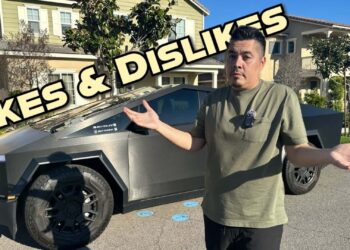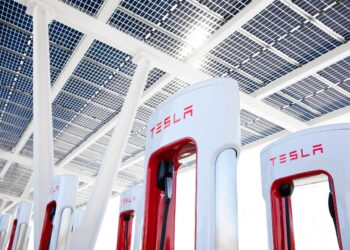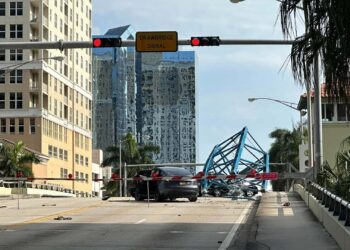The U.S. is aiming to put 33 million electric vehicles (EVs) on the road by 2030, along with 500,000 public EV chargers by the same year. A new report shows that the rollout of DC fast-charging stations is still far from reaching these goals, though Tesla’s Supercharger network leads charging infrastructure deployment in the U.S. by a wide margin.
According to a charging infrastructure report shared last month by the National Renewable Energy Laboratory (NREL), Tesla is leading the rollout of DC fast-charging stations by quite a wide margin. The report looks at the rollout of EV charging stations through the third-quarter of last year, and it shows that Tesla currently makes up nearly two-thirds of the nation’s DC fast-charging ports on the report’s Station Locator.
According to the data, 61.7 percent of public DC fast-charging ports in the report’s Station Locator are on the Tesla Supercharger network, and 8.1 percent of public Level 2 ports are in the company’s Destination charging network.With Tesla’s Superchargers, the report says the U.S. is only about 9.1 percent of the way to the 2030 targets, or just 3.1 percent of the way when excluding the automaker.
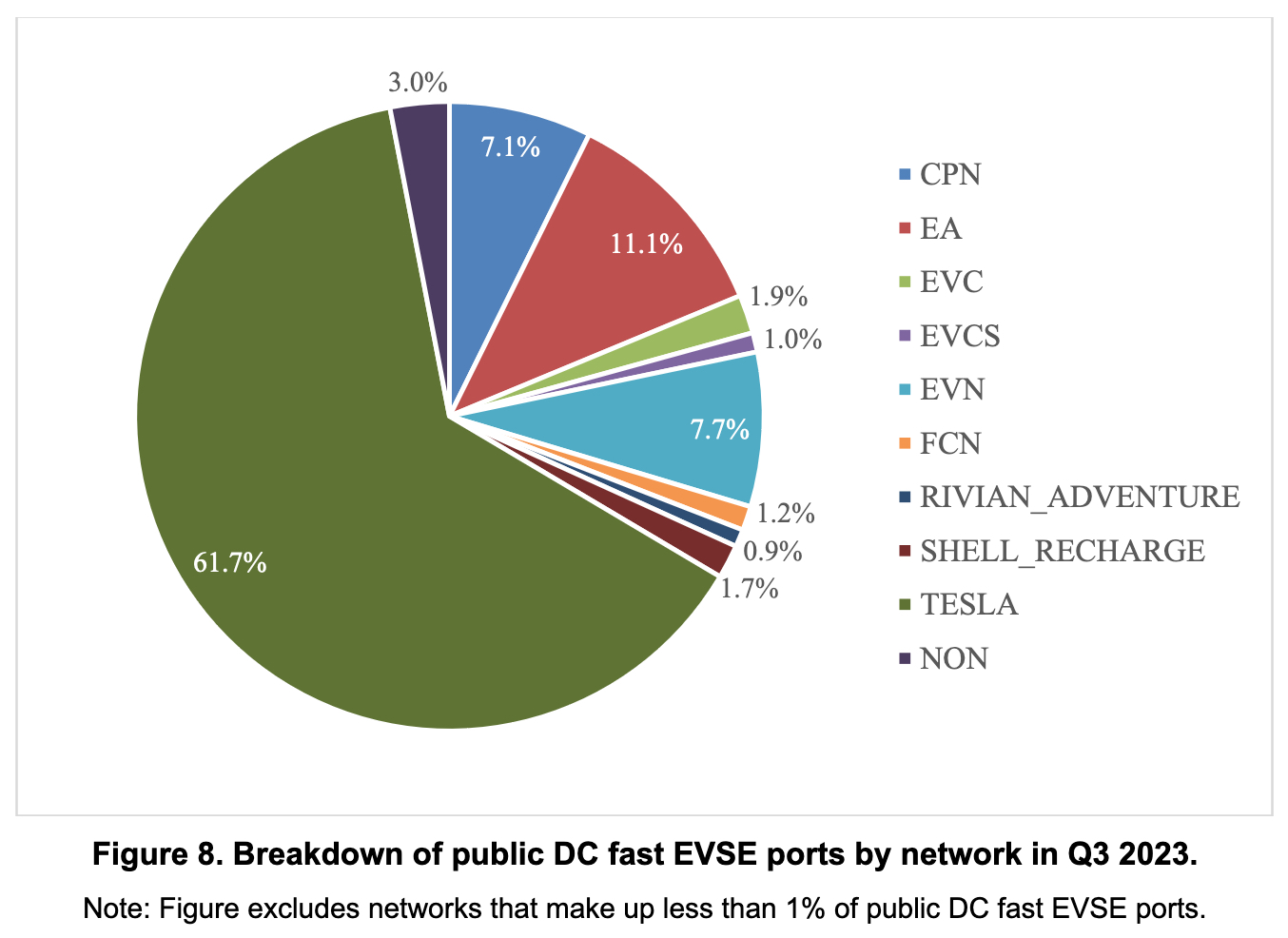
Credit: National Renewable Energy Laboratory
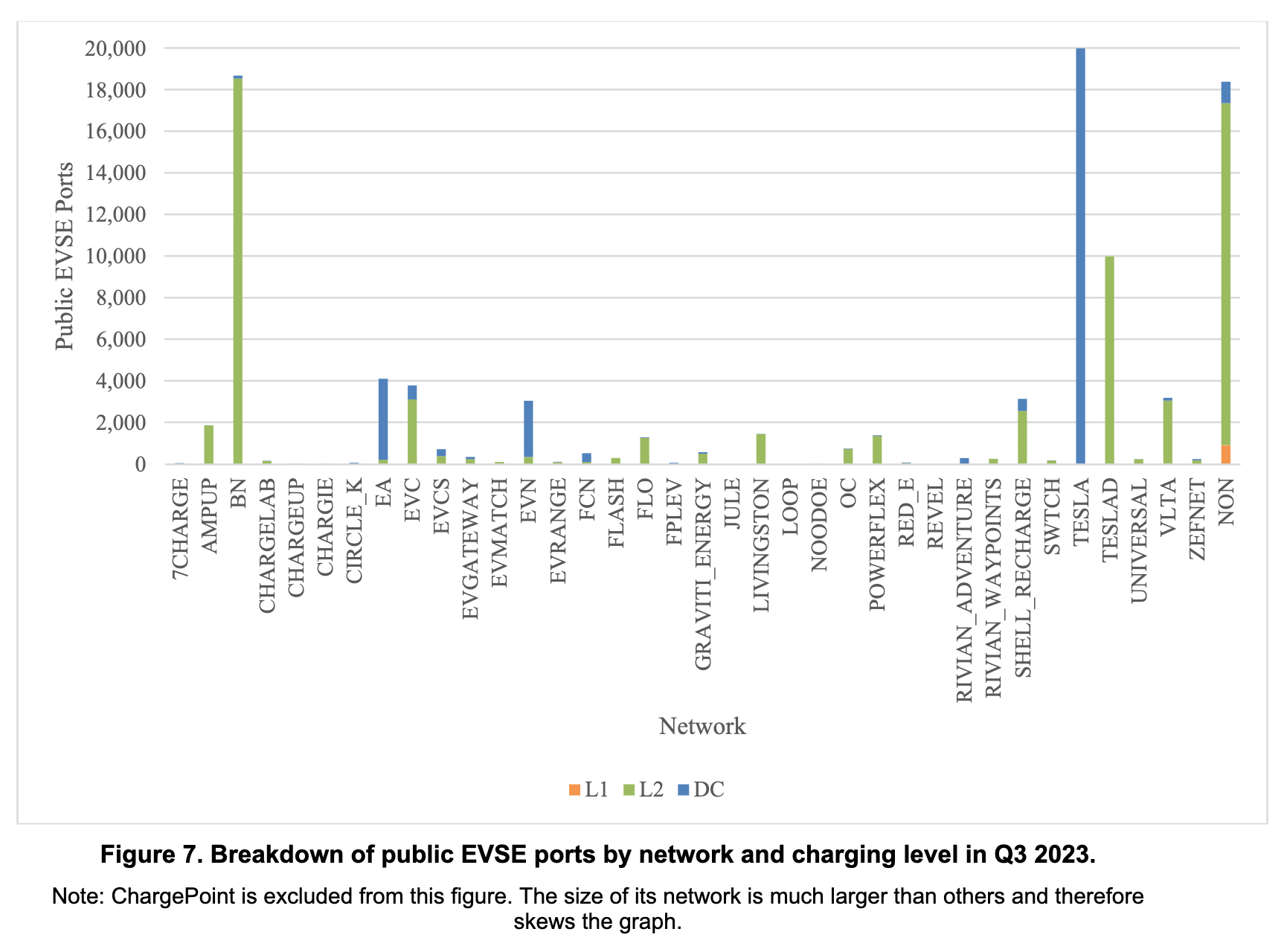
Credit: National Renewable Energy Laboratory
While ChargePoint is omitted from the above graph due to its 62,580 public charging ports making the graph appear skewed, most of the company’s chargers are Level 2, rather than Tesla’s many Superchargers, which are DC fast-chargers. The report also notes that 2,696 fast-charging ports were added in the U.S. in Q3 last year, representing an 8.3 percent increase from the same quarter a year earlier.
You can read NREL’s full report here, dubbed the “Electric Vehicle Charging Infrastructure Trends from the Alternative Fueling Station Location: Third Quarter 2023.”
Tesla said just last week that it is now rolling out one Supercharger stall every hour, expected to bring the network’s total to 23,000 stalls in North America by this time next year.
While Superchargers have traditionally only been available to Tesla owners, the automaker has begun opening up its Supercharger network to other brands, starting this month with Ford. In the coming weeks, EVs from Rivian, General Motors (GM), Volvo and Polestar will follow, eventually leading the rest of the auto industry into Supercharger access.
In a few years, most automakers will also start producing their own EVs with Tesla’s NACS charging port, giving owners access to the Supercharger network without the use of an adapter.
While Tesla is largely considered to have the most reliable charging network with its Superchargers, other companies are still struggling to keep charging stations working. Last month, a J.D. Power report noted that around 18 percent of public charging attempts at Level 2 chargers had been unsuccessful in Q4 2023, with outages making up a majority of the failed attempts.
In January, however, the U.S. unveiled nearly $149 million in grants dedicated to fixing around 4,500 broken public chargers, along with multiple other investments into the EV sector.
What are your thoughts? Let me know at zach@teslarati.com, find me on X at @zacharyvisconti, or send your tips to us at tips@teslarati.com.



